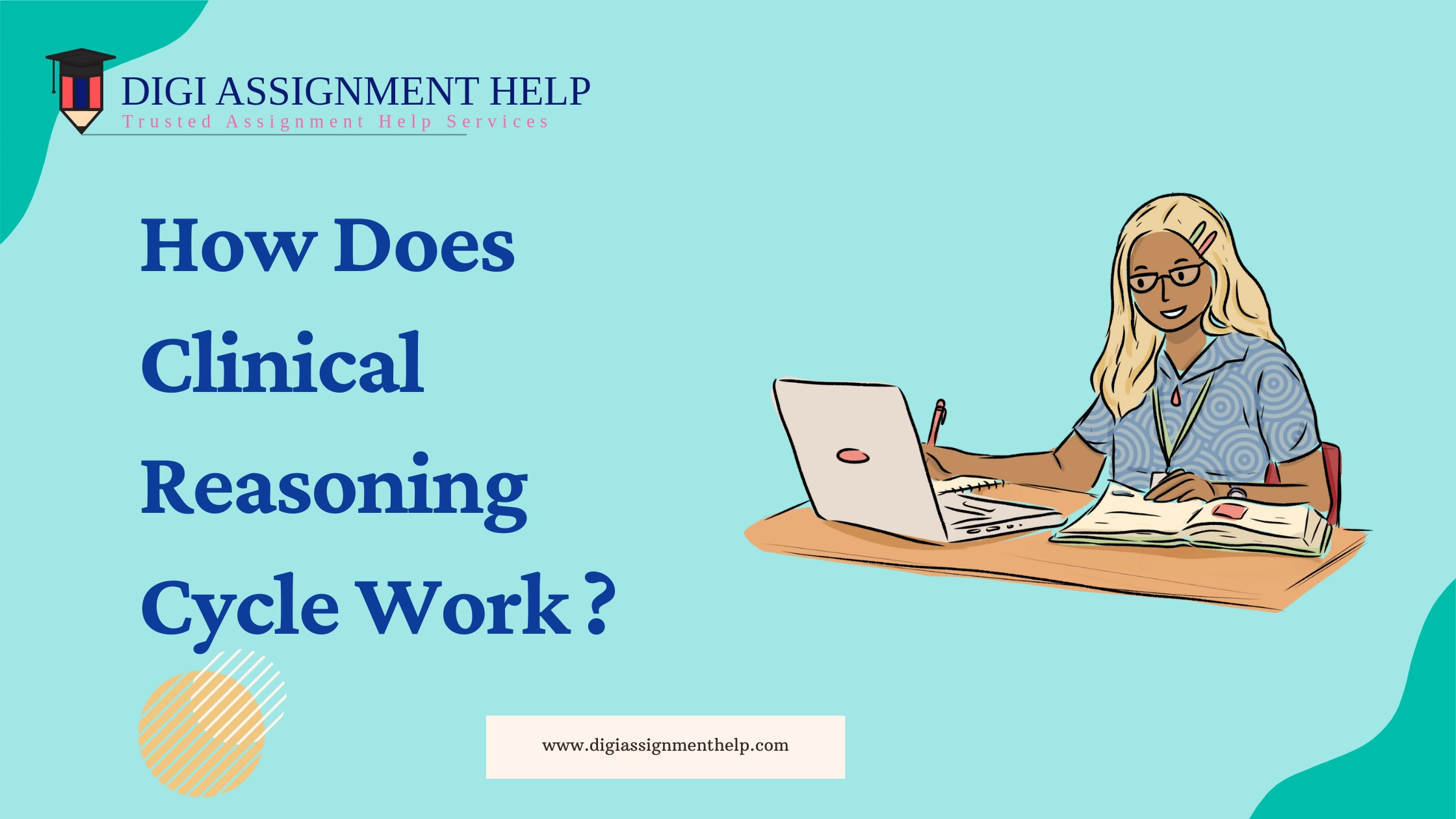How Does The Clinical Reasoning Cycle Work?
 23-May-2024 09:39 AM
23-May-2024 09:39 AM

Have you heard about the Clinical Reasoning Cycle? It's a crucial process in the medical field that helps healthcare professionals provide the best care for their patients. One key step in this cycle is clinical logic.
During this step, doctors gather various samples, analyse data, understand their patients' health issues, and develop effective treatment plans.
To excel in clinical reasoning tasks, it's essential to thoroughly grasp these concepts and meet the high standards expected in the Australian healthcare system.
What Is The Cycle Of Clinical Reasoning?
The Clinical Reasoning Cycle is an essential part of the curriculum for nursing students in Australia. This process is fundamental for medical professionals, including nurses and doctors.
The first step involves gathering signs and reports from patients. Then, they analyse this information to identify the patient's issues.
This cyclical process helps nurses understand their patients' conditions, diagnose illnesses, and develop effective treatment plans to aid in their recovery. Additionally, students often seek assistance with their nursing assignments to better grasp these critical concepts.
The clinical reasoning loop helps nurses learn how to use the instrument and make a plan for how to treat the patient. They also guess what the best outcomes will be and focus on how well the combined method they are using works.
The main parts of the thinking process make up the clinical cycle. Thus, it is vital for nursing school students. After learning about the clinical thought cycle, you should grasp why and how it helps students.
Why The Clinical Reasoning Cycle Is Important ?
The Clinical Reasoning Cycle is vital for nurses in Australia as it helps assess patients' health and develop appropriate care plans. This cycle is used to monitor patient recovery and diagnose health issues accurately. Mastering this skill is crucial for nurses to advance in their careers.
Making nursing decisions without solid clinical reasoning can jeopardise patient safety. If nurses are unable to diagnose and treat patients effectively, the patients might suffer from severe illnesses.
This issue can be mitigated if nurses study and apply the clinical reasoning cycle in their practice. For the safety and well-being of patients, it's essential that healthcare professionals, including doctors and nurses, are proficient in clinical logic.
The Clinical Reasoning Cycle Has Different Stages
As a healthcare professional, following these steps of the clinical reasoning cycle can help you solve problems and make choices so you can give your patients the best care.
Taking into account the facts
Here comes your first real-life case. You may learn how a newborn with neonatal jaundice was admitted to the NICU and their current medical condition here.
Gathering information
At this phase, you thoroughly review the patient's medical history, current issues, treatment plan, test findings, and vital signs. Next, you analyse the results and develop conclusions using your physiology, pharmacology, pathology, society, and ethics knowledge.
Processing the data that was gathered
This step is crucial and is central to the nursing clinical reasoning loop. Here, you review the information about the patient's current mental and physical health, decide what information is important, and consider what might happen if you make a certain choice.
Figure out the issue
A good information processing phase can help you determine what is wrong with the patient.
Set clear goals
In this section, you pick the suitable rehab goals for the patient.
Treatment plans should only last a short time. Please determine what you must do and how quickly you want it to happen.
Take Action
You are now practicing the steps needed to meet the patient's care goals. Of course, other people on the healthcare team will be involved as well. Because of this, everyone should know what the treatment goals are for each patient.
Checking Out
At this point, you evaluate the effectiveness of your chosen plan of action. This will help you decide whether to change things or continue as you are.
Reflection
During this stage of professional thinking, the skill gets better. After this step, you think about what you know about the case, what you could have done differently to get a better result, and what you should never do again.
The clinical thinking cycle is made up of the steps listed above. But if you need more time to finish your schoolwork, get help from a professional writer. They are going to help you finish your work.
Conclusion:
Students who are struggling with clinical reasoning cycle or other academic assignments can get expert help from Digi Assignment Help. Our nursing-savvy writers can help you do your projects quickly and well, guaranteeing you get the greatest grades.
We need to get assignment help to avoid problems that can come up when we're writing, whether we're writing for nursing or another field. A lot of the time, students think that asking for help with the clinical reasoning loop is better than wasting time and getting bad results.










.webp)
















